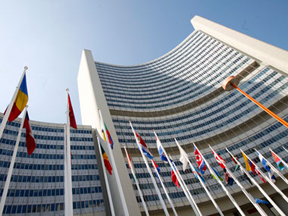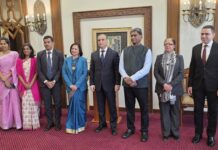 NEW DELHI: India’s decision to abstain from voting on the US-sponsored resolution on alleged war crimes by Sri Lanka at the UNHRC was taken at the “political” level for the welfare of the Tamils in that country, the External Affairs Ministry said today.
NEW DELHI: India’s decision to abstain from voting on the US-sponsored resolution on alleged war crimes by Sri Lanka at the UNHRC was taken at the “political” level for the welfare of the Tamils in that country, the External Affairs Ministry said today.
“Any decision relating to foreign policy is a political decision, is it not? And no official will take a decision without taking a political sign off,” Foreign Secretary Sujatha Singh told PTI.
Singh was replying to a question about Finance Minister P Chidambaram’s remarks last week that the decision of abstention could have been taken by officials in the External Affairs Ministry.
Expressing unhappiness, Chidambaram had further said, “Twenty three countries had supported it and we also should have supported even if it was a watered down one.”
The Foreign Secretary said India abstained from voting on the resolution as it was “extremely intrusive” and that New Delhi has always been against any country-specific resolution in UNHRC.
The resolution, which sought an international inquiry into alleged war crimes in the last stages of conflict with the LTTE in 2009, was adopted by 23 votes. India, along with 11 other countries, abstained from voting while 12 other countries including Russia, China and Pakistan opposed the resolution.
“The last two resolutions called upon Sri Lankan government to look into the issue and to work toward reconciliation. This year the resolution was extremely intrusive. It proposed an international mechanism, an open ended international mechanism, and in our mind we do not want such an intrusive mechanism,” she said. . The Foreign Secretary said the decision to abstain was “based on our analysis” of the issue.
This is for the first time that India abstained from voting on the resolution – ‘Promoting reconciliation, accountability and human rights in Sri Lanka’. All three times- 2009, 2012 and 2013 – India voted in favor of the resolutions.
“It’s not just showing solidarity with the Tamils in Sri Lanka for the sake of showing solidarity. We have to be able to get results on the ground and we have to show to Tamils in Sri Lanka that we are able to help them.
“You know the biggest housing project in the world is being implemented over there (by India),” she said.
India has constructed over 10,000 houses for war-affected people in Sri Lanka’s northern province and started work to build another 16,000 dwelling units.
In 2010, the government had announced plans to construct 50,000 houses for resettling and rehabilitating people displaced in northern and eastern provinces during the civil war in Sri Lanka.
In the first phase of the project, India constructed 1,000 houses for war-affected victims in the Northern province and 10,000 houses were built under the second phase of the project till December 2013.–PTI






